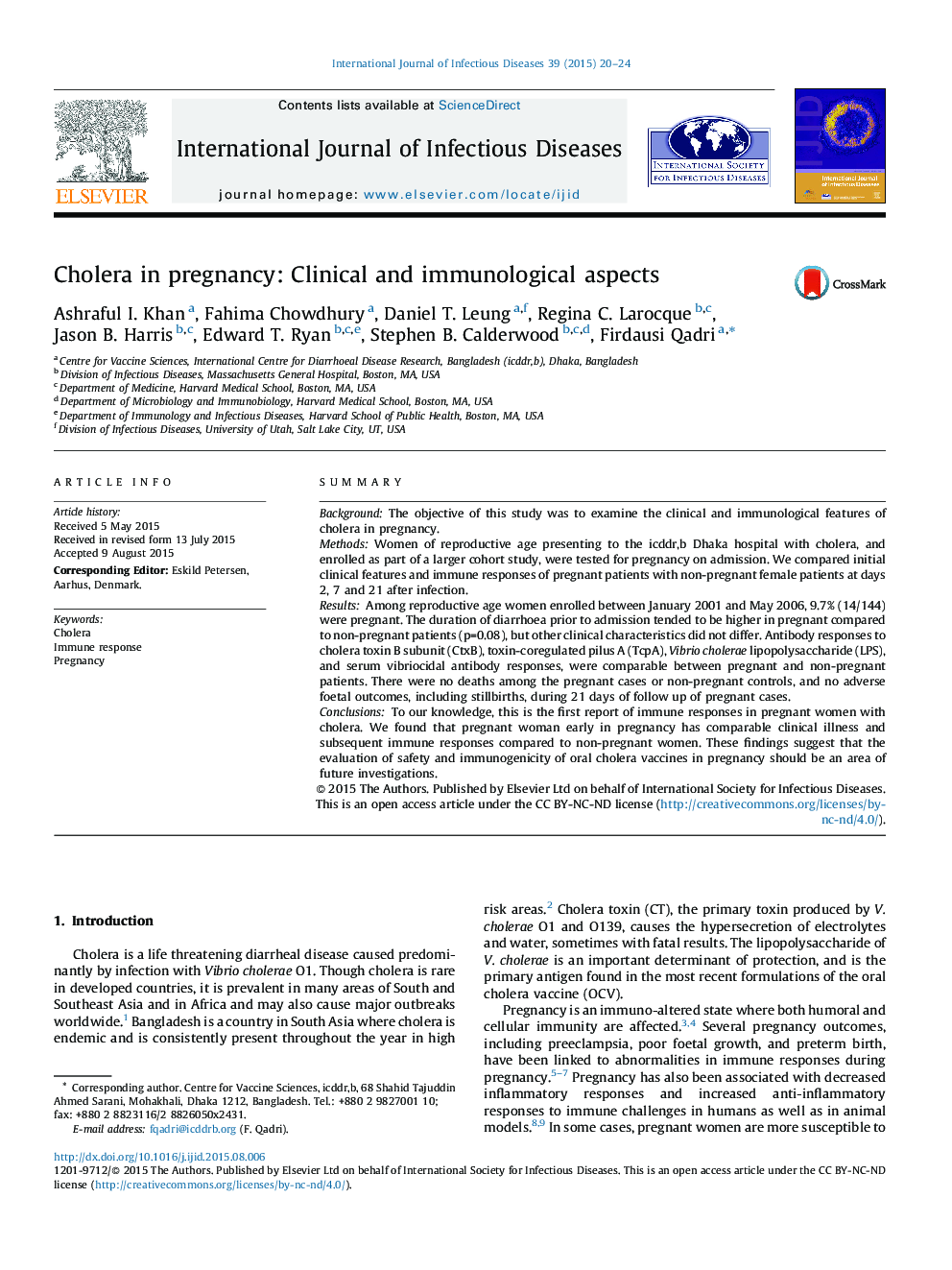| Article ID | Journal | Published Year | Pages | File Type |
|---|---|---|---|---|
| 3362020 | International Journal of Infectious Diseases | 2015 | 5 Pages |
•Pregnant and non-pregnant women with cholera had similar clinical severity and comparable immune responses.•We did not observe adverse foetal outcomes in 21 days of follow up after cholera in this cohort presenting at a median of 14 weeks of gestation.•These data support further study of the use of oral killed cholera vaccine in pregnant women at risk for cholera in cholera endemic areas.•Our study was limited to individuals with severe cholera, and immunological responses in mild or asymptomatic cases were not evaluated in the cohort.
SummaryBackgroundThe objective of this study was to examine the clinical and immunological features of cholera in pregnancy.MethodsWomen of reproductive age presenting to the icddr,b Dhaka hospital with cholera, and enrolled as part of a larger cohort study, were tested for pregnancy on admission. We compared initial clinical features and immune responses of pregnant patients with non-pregnant female patients at days 2, 7 and 21 after infection.ResultsAmong reproductive age women enrolled between January 2001 and May 2006, 9.7% (14/144) were pregnant. The duration of diarrhoea prior to admission tended to be higher in pregnant compared to non-pregnant patients (p=0.08), but other clinical characteristics did not differ. Antibody responses to cholera toxin B subunit (CtxB), toxin-coregulated pilus A (TcpA), Vibrio cholerae lipopolysaccharide (LPS), and serum vibriocidal antibody responses, were comparable between pregnant and non-pregnant patients. There were no deaths among the pregnant cases or non-pregnant controls, and no adverse foetal outcomes, including stillbirths, during 21 days of follow up of pregnant cases.ConclusionsTo our knowledge, this is the first report of immune responses in pregnant women with cholera. We found that pregnant woman early in pregnancy has comparable clinical illness and subsequent immune responses compared to non-pregnant women. These findings suggest that the evaluation of safety and immunogenicity of oral cholera vaccines in pregnancy should be an area of future investigations.
